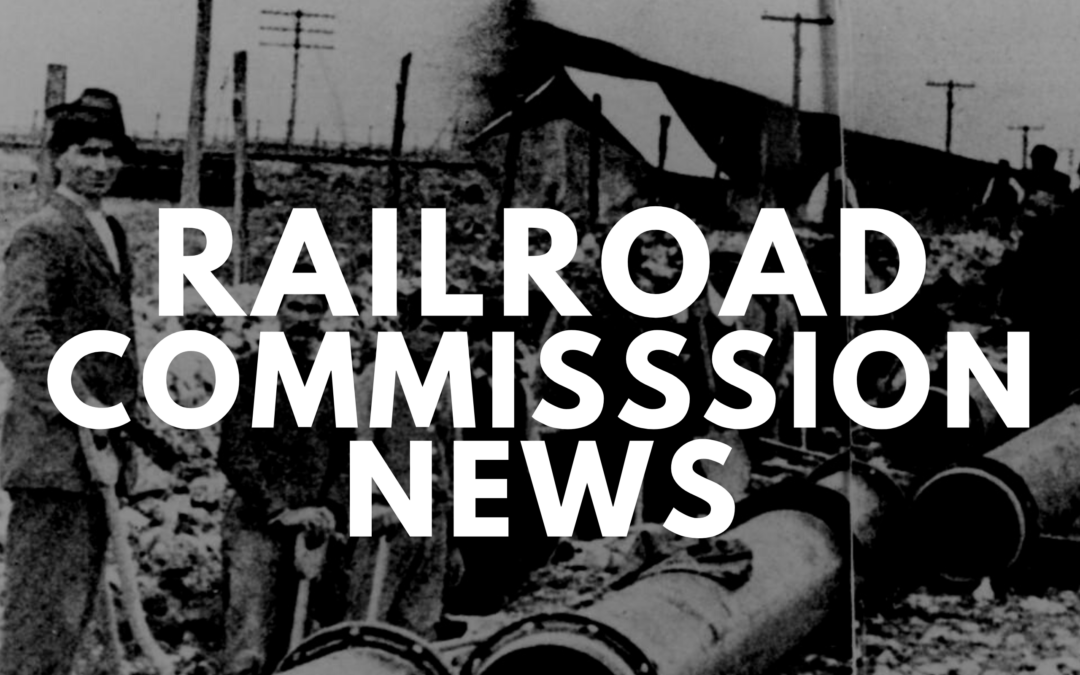Chair Craddick described new legislative funding for inspections, critical energy mapping and other purposes.
________________________________________________
Armed with more funding and called upon to shore up energy delivery after the 2021 winter disaster, the Railroad Commission of Texas has expanded its regulatory and inspection activities this year, according to agency Chair Christi Craddick.
Speaking recently in her hometown of Midland, Chair Craddick described new legislative funding for inspections, critical energy mapping and other purposes. She also described new regulatory responsibilities for the agency. Her comments were reported on October 8 in the Midland Reporter-Telegram.
Highlights of Ms. Craddick’s comments:
- In addition to its existing budget, the agency was awarded additional funding by the Texas Legislature this year to hire 50 additional inspectors and to purchase more equipment. Ms. Craddick said the agency requires the extra personnel and equipment because it only has until next May to inspect about 100,000 miles of gathering lines, which is a new responsibility. She also said the agency received funding to hire five more people for environmental permits and to operate a public engagement office.
- She said the Texas Legislature has tasked the agency with mapping critical infrastructure in the aftermath of Winter Storm Uri, in 2021. Some have partially blamed the massive power losses during the storm on gas infrastructure failures. Ms. Craddick said the agency received $3 million in funding to automate critical infrastructure maps.
- The agency increasingly has begun regulating new energy sources like hydrogen, a departure from its more traditional role overseeing the oil and gas industries, she said. Ms. Craddick said the commission is sifting through 60 applications it received for the Texas Hydrogen Production Policy Council.
- Ms. Craddick said the agency awaits feedback from proposed changes to its Statewide Rule 8 that protects groundwater sources. Those changes include streamlining existing environmental protection regulations, and updating requirements on the design, construction, operation, monitoring, and closure of waste management units. The agency released draft rules on Oct. 9. However, according to recent media reports, some industry representatives began giving input into the rules more than two years ago.
- The commission is seeking primacy designation from the federal Environmental Protection Agency for overseeing carbon capture and sequestration operations. Ms. Craddick said she hopes to receive an EPA response “sooner rather than later.” She said two other states — North Dakota and Wyoming — already possess such authority.


